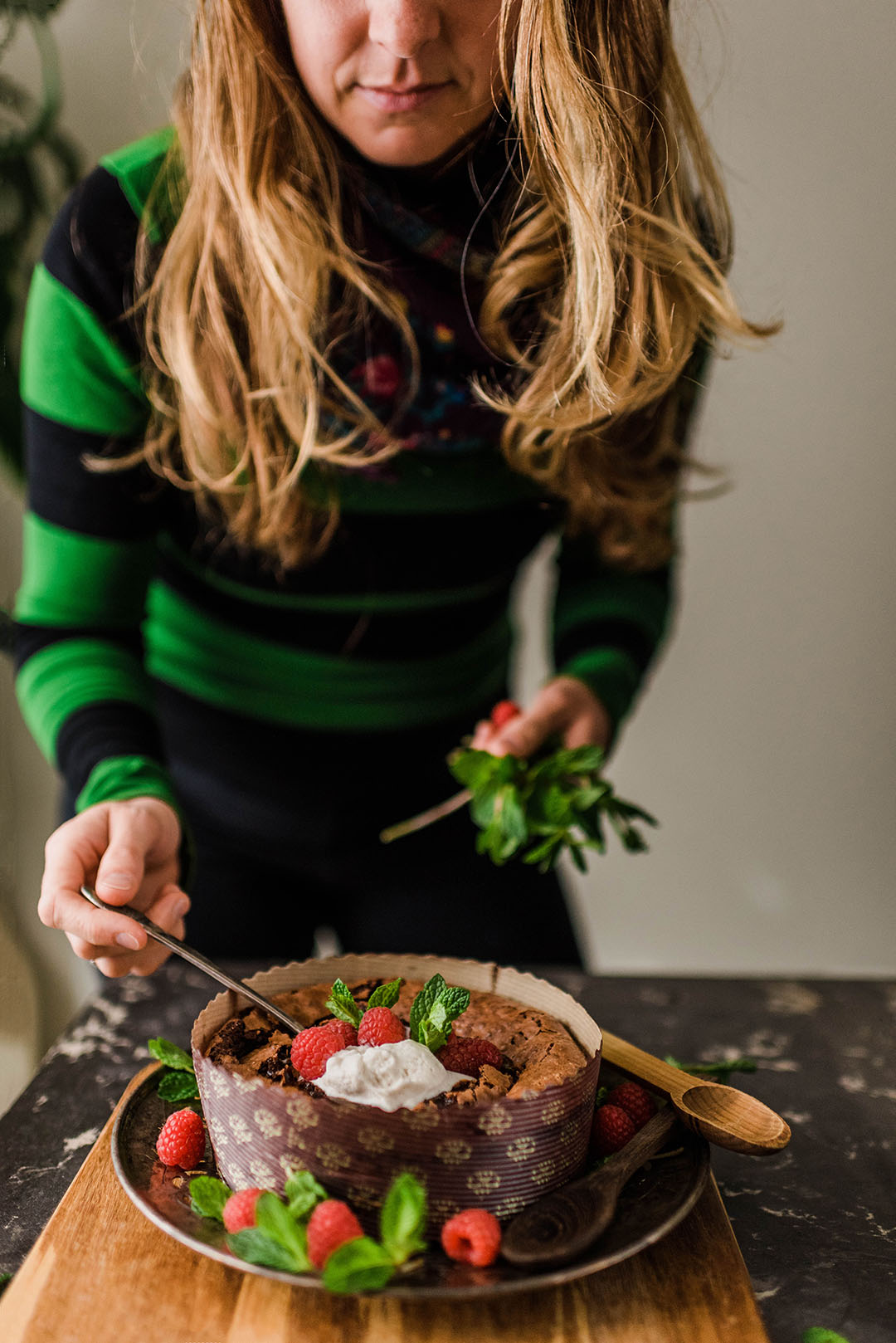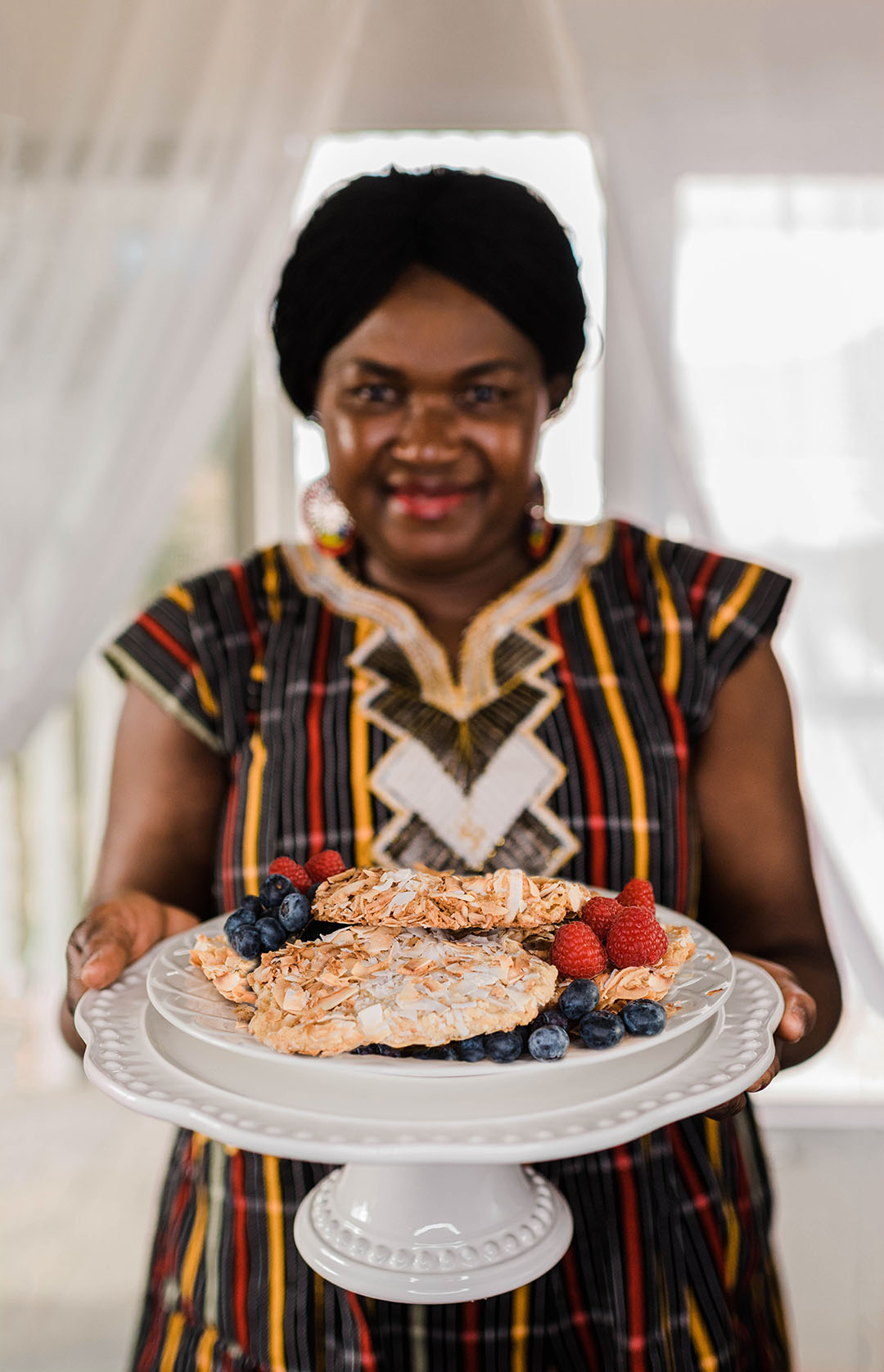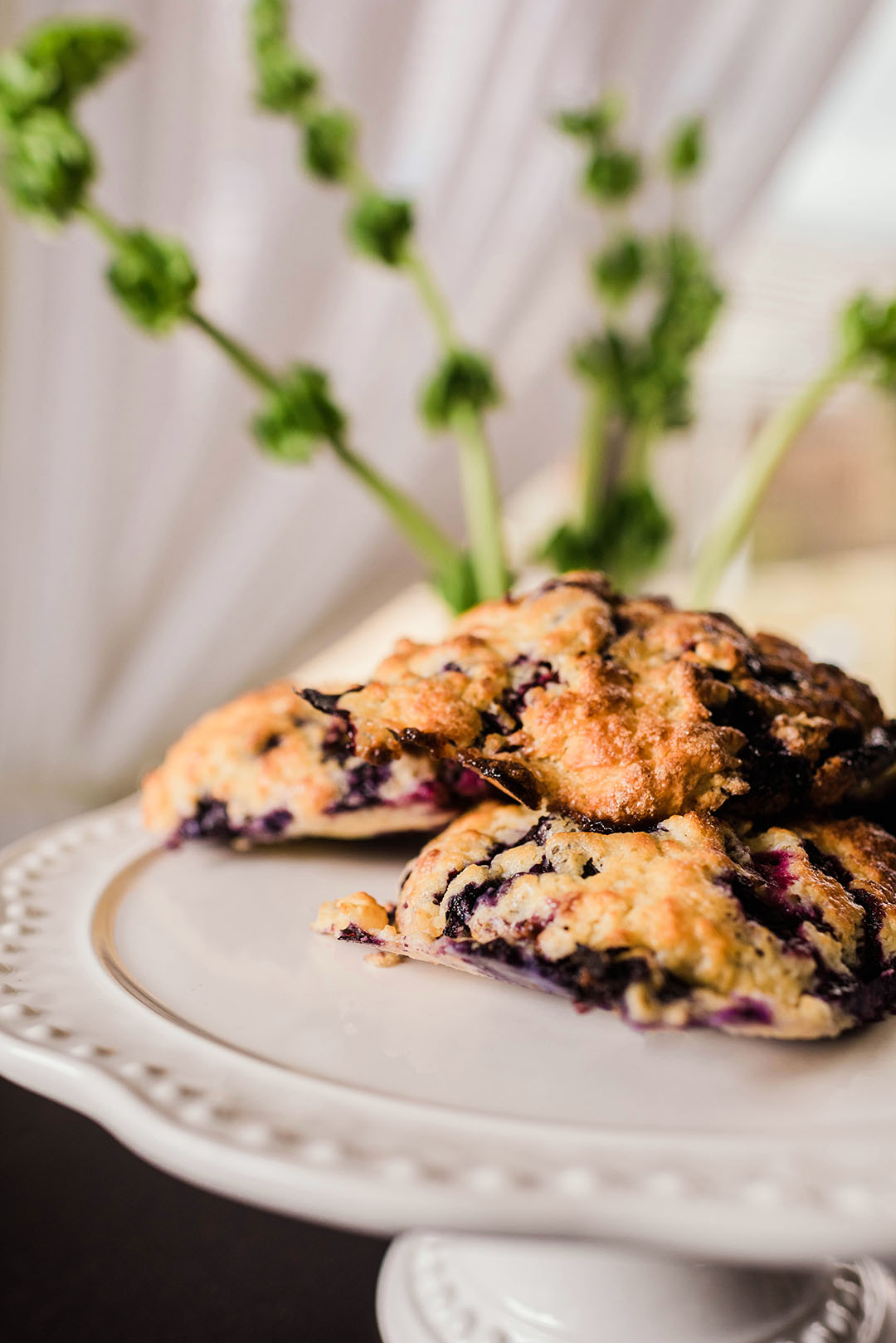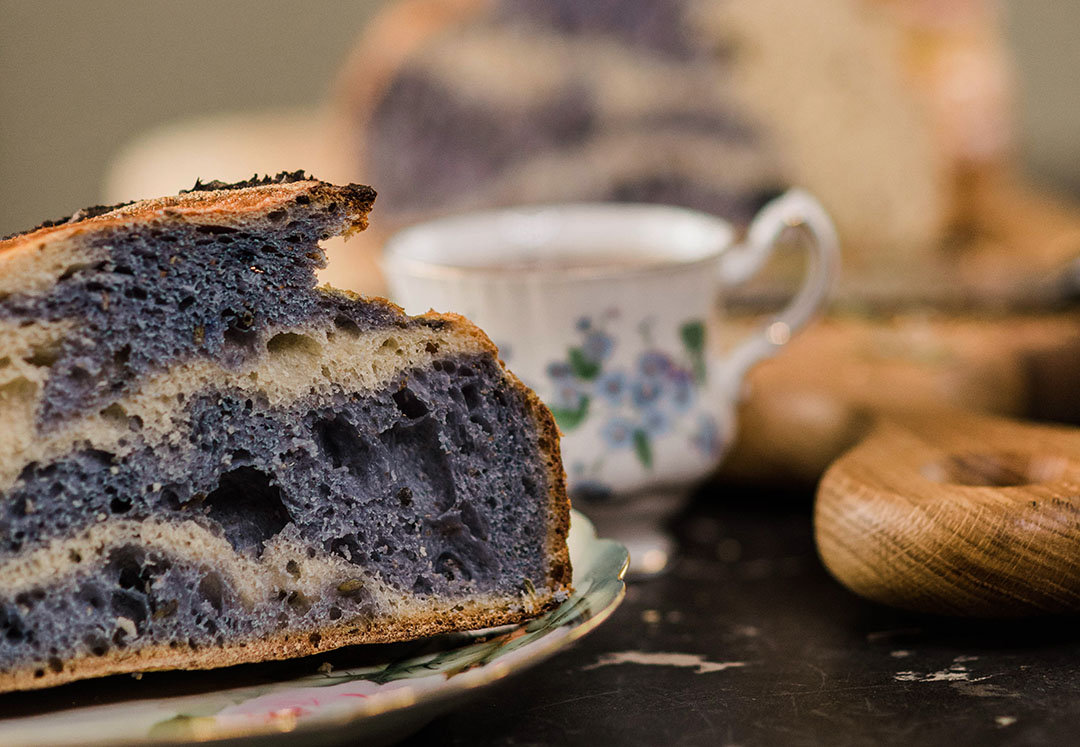Meet Reno-Tahoe’s microbakery entrepreneurs.
For most of us, baking at home is a task done on the weekend for fun, to celebrate special occasions, or to satisfy the occasional sweet tooth. And as we saw in spring of 2020, baking also can be a source of enormous comfort during uncertain or stressful times.
For the five Nevada women entrepreneurs you’re about to meet, baking at home is much more than a way to pass the time. It’s a legitimate means for earning a living.
Since the Nevada Legislature passed the Cottage Food bill, SB-206, in 2013, allowing licensed home bakers (and other food creators) to make and sell homemade foods, a growing number of Nevadans have started making a living by cooking up delicacies in their own homes.
Though the venues where they sell these items may vary — some of the women profiled here sell at local farmers’ markets or festivals — a large and growing number are taking advantage of social media platforms to make customers aware of what’s available, where, and when.
The bakers profiled here are a diverse bunch, hailing originally from such disparate locations as California, Florida, Canada, Europe, and Africa. Two have toddlers, and three have grown children. Some sell pastries while others’ bread and butter is, well, bread. But they have one experience in common: They have all found success through cottage bakery operations, otherwise known as microbakeries.
European Delights
Even during a frigid winter morning, Eva Ruiz can be found at the Riverside Farmers Market in Reno, wrapped in wooly warmth, impervious to the cold and ready to greet you with a sunny smile, welcoming you to her world of pastries and preserves.

Ruiz’s Lowenkind Bakery — named in honor of her late father, who called Ruiz and her siblings “lowenkind,” which means “child of the lion” in German — made its debut at the market two and a half years ago. Born in Germany and raised in Luxembourg and France, Ruiz specializes in German- and French-influenced pastries, which are organic and gluten free. (Some also are free of dairy, grain, refined sugar, and nuts or are vegan.)
Her niche in the market took time to gain wide recognition, she says. In the beginning, people didn’t understand how flavorful gluten-free pastries could be or dismissed them outright. Ruiz recalls a shopper exclaiming, “I can get two cakes at Walmart for the price of one of yours.” To most bakers, that would be an insult, but Ruiz took it in stride.
They are small because they are European-style, she explained, “but they are rich, dense, and full of flavor. You only need a small slice to feel satisfied.”
These days, she doesn’t have to work so hard to explain. Her cakes are scooped up by eager customers, whether they’re seeking gluten-free items or not.
Ruiz’s pastries are made from scratch from her own recipes. For her, creating recipes, she says, is like an artist envisioning colors; she envisions flavors.
“I bake by feeling,” Ruiz says. “Intuitively feeling what I want the taste to be and tasting it in my head. Then I create [the pastry], and if it needs more, I will keep working on the recipe until the final product is just right.”
She works with varieties of organic (non-wheat) flours, matching flours that work well together in shaping flavor and texture. Homemade baking powder, high-quality ingredients such as organic chocolate, and fresh spices, juices, and homemade Madagascar vanilla are part of her palette. So are nuts, except peanuts and walnuts.
At the Riverside market, pastry choices change weekly — some days you might find an iced lemon cake or a fondant chocolate cake, which, if eaten warm, flows like lava cake. (Who says gluten-free means sacrificing flavor?) Other days, you may find pecan crunchies, which are meringue cookies with caramelized pecans, inspired by the memory of a German cookie she loved as a child.
Ruiz has a 5-year-old son, and her husband, Leo, works remotely. The two met in Luxembourg; he was a friend of her brother who was visiting from America. She admits that juggling domestic duties and business time in the kitchen can be tricky; she takes Sundays and Mondays off. The rest of the week, she bakes at her mother-in-law’s multipurpose house, which has two kitchens. One is designated strictly for Ruiz’s business.
It’s labor-intensive work, but Ruiz — who was wooed by the art of baking as a young girl, even reading cookbooks in bed at night — says she can’t imagine doing anything else.
“My passion is food. I love baking my pastries,” she says.
Born From an All-Nighter
When Kathleen “Kathie” Pitts settled in Dayton, she knew what she was going to do: open a microbakery. She applied online for a cottage food license in late August 2018. Then she waited, and waited, for approval.
Normally, approvals come more quickly, but her application just happened to collide with a certain international event that happens in the beginning of September on the Black Rock Desert. Pitts, a transplant from San Jose, wasn’t familiar with the event’s effect on the local economy. After numerous calls to track her application, she finally got an answer: “The office is closed right now for Burning Man.” (Only in Nevada…)
Fortunately, Pitts received her license — six days before a festival slated for early October in Dayton. She baked nonstop, in a frenzy, so that she could introduce her pastries at the festival, even pulling an all-nighter. But it was worth it.
“At that first event, I was very well received,” she says.
Pitts specializes in custom cakes. With daughter-in-law Kendra Koch, who helps with cake designing and baking, the two have created some remarkably eye-catching cakes. Take, for example, the Jack Daniel’s cake, which features a fondant barrel piled with isomalt (a sugar substitute made from sugar beets) ice cubes and a clutch of real mini-Jack Daniel’s bottles. Then there’s the cake replica of Piper’s Opera House in Virginia City in honor of one of its anniversaries. Her menu includes birthday and wedding cakes, cookies, and cake pops. She says children love her cakes, especially when decorated as baby elephants or Star Wars characters.

Her baking is 98 percent from scratch, though she admits the French vanilla-strawberry cake starts with a Betty Crocker box mix.
“I tried making it from scratch, but I never could get it right,” she says.
Once she empties the box in the mixer, she makes the cake her own, substituting butter for oil and transforming it to another level with decoration.
With a day job at her family’s business, Power Brake Exchange in Carson City, she doesn’t bake full time. Depending on her orders, she bakes three to four days a week, after work, in the home kitchen she designed. It has two ovens, a large granite kitchen island on which to work, and ample space for storing supplies and equipment, including four mixers.
Cottage bakery rules prohibit shipping products. Baked goods must be picked up at the baker’s house or delivered. Both systems work well for her.
“It’s a nice little side business,” Pitts says, explaining that it provides her with mad money. “I enjoy doing it and seeing how happy my customers are with my work.”
Busy Baker
Octavia Merritt drives a fire-engine red Camaro and wears the coolest pair of glasses, rimmed with black-doily-fringe frames. A preschool teacher at Northside Early Learning Center in Fallon, she’s also an after-school tutor and a power lifter in the evenings, benching and squatting with weights in her garage’s makeshift gym. And as if that weren’t enough, then there’s her microbakery.
In 2013, Merritt had a cottage bakery in Virginia, where her Navy-career husband was stationed. She and a close friend — so close Merritt considers her as a sister — were working together. When he was reassigned to the Fallon Naval Air Station in 2017, she arrived already knowing the ins and outs of the business and knew the bakery name would be Sweet Sisters Treats, to pay homage to her “sister.” She applied online for both a small business license and a cottage food one.
“[With a cottage license] I can’t sell my baked goods for resale to a commercial business; it’s one of the restrictions,” she says. “But I can with the other license.”
She also took an optional online course on food safety and sanitation and earned a certificate.
Merritt’s love of drawing is reflected in her artisanal baking. Decorated cookies and cupcakes are frequent requests. (She has bins of molds and cookie cutters, too many to count.) Gourmet cakes are her specialty, too; many are themed birthday cakes. She can even replicate cakes from photos customers give her, creating copies with surprising accuracy.
Her hot chocolate bombs are a hit with children. Picture a round chocolate ball, about the size of a baseball, with a secret explosive concealed inside it. When the chocolate orb makes contact with hot water or hot milk, boom! Marshmallows pop out, creating a hot cocoa drink.
Merritt has done a couple of pop-up sales in Fallon — one at Telegraph Coffee & Tap, the other at Dandelion Express, a floral shop. She expects to pop up again this summer. A busy woman during weekdays, Merritt reserves her weekends to fill pastry orders.
“I rarely have a non-order week,” she says.
She has designated space for doing pastry work in her kitchen; she bakes in her home oven. Once the pastries cool, she packages them, according to cottage food rules, and puts them in the freezer to keep until needed.
“Baking,” she says, “keeps me artistic and creative. It also keeps me young and in a mentally good place.”
African Bounty
The conversation started over Fausta Apambire’s whole-wheat multigrain bread. Free-formed and Frisbee-sized, moist and dense with a generous amount of grains (six), it is a bread to behold. (And to eat with a fat smear of butter.)

“It took me four years to develop it,” she recalls.
Originally from Ghana, Africa, Apambire lived in Canada and California before settling in Reno in 2013 with her husband, a hydrologist with Reno’s Desert Research Institute. Her love of cooking dates back to her time at an all-girl Catholic school in Ghana, where she learned “cookery and home science.”
In Reno, she decided to act upon her culinary skills, inspired by the praise given by family and friends; she started catering in 2014. (More on that later.) The bakery came soon after. Apambire modified her late parents’ names, Mwintuur and Sophia, to create MwintSoph as the name of her catering and baking business.
To introduce herself and her bakery to the community, she appeared at Reno’s numerous farmers’ markets, food festivals, high school craft fairs in Reno and Incline Village, seasonal events … wherever she could show she was the face of her business. At the Riverside Farmers Market in Reno, she has a permanent spot. To this day, she regularly travels to most of the summer farmers’ markets, including the market at Sparks’ United Methodist Church on Pyramid Way and others.

Apambire believes in bounty. Her market table usually is covered with multiple cookies, biscotti, rum cakes, blueberry scones, baklava, peanut brittle, pumpkin bread, cheesy bread, and, of course, that amazing multigrain bread. She recently added a new product to the menu: an African-style hibiscus tea with special spices that is popular in Ghana. It’s called sobolo, also known in parts of Africa as bissap, and sold by the glass.
As for her catering, she offers African foods, such as jollof rice, rice balls with peanut soup, and baked beans with eggs. She also offers a “cross-cultural” dish, as Apambire calls it — tamales filled with beef, pork, chicken, or eggplant in an African tomato stew.
Just to cover all bases (“I didn’t want any issues,” she says), she has two licenses: cottage food and commercial food service. She cooks and bakes in a rented commercial kitchen on Spice Island Drive in Sparks.
“I bake almost every day,” she says. “In the summer, every day. It’s a full-time job.”
But is it worth it? She doesn’t blink when she replies, “I love what I do; otherwise I wouldn’t do it.”
Pandemic Panacea
In January 2020, Stephanie Crowley Papaioanu’s business evaporated. A calendar year’s worth of bookings were erased in five days. Her 18-year-old graphic recording business, Chrysalis Studios, was gone, as was one entire income in a two-income family with a toddler. Gone were the business conferences in which she linked, in real time, the speakers’ words to images she drew on a mural to create graphic representations of their ideas. As with the rest of us, the pandemic had flipped Papaioanu’s world upside down.
“I didn’t know what to do,” said Papaioanu, who has a marketing degree. “I retreated to the kitchen.”
She certainly wasn’t alone in this. We all wanted comfort foods — soups, cookies, stews, bread. Yeast shelves were entirely empty; from-scratch sourdough starter was trending. Thus, Papaioanu’s next project began.
She saw an impressive sourdough bread posted on her Canadian cousin’s Facebook page. Papaioanu, who was born in Ottawa, texted her cousin in admiration and politely asked if she could get just a snippet of her cousin’s starter. Family shares; she eventually received a treasured portion of 35-year-old Yukon starter.
“I’d never had home-baked bread, much less sourdough,” Papaioanu says. “I did a lot of experimenting.”
She researched everything about sourdough, feeding the starter regularly, plunging her hands into dough to feel the texture, tracking resting times outside and inside the refrigerator, gauging temperature and humidity numbers. Even though she approached it scientifically, she experienced failures.
“There were lots of croutons,” she says and laughs, remembering. “The learning curve was steep … I never considered a cottage business baking sourdough bread.”
But after baking a number of successful breads, she took on the challenge.
“What do I have to lose but the money for the license?” she thought.
Papaioanu, needing a name for her bakery, came up with One Cheek Squeak, so named for the flatulence-sounding noise sourdough releases as it proofs. Or, as Papaioanu explains on the packaged sourdough label, “baking up yeast farts with love.”
In the beginning, in 2021, Papaioanu offered only traditional sourdough bread. But people asked for different flavors. Quickly expanding the variety, she eventually was able to offer a selection of 19 breads, in savory and sweet varieties. Her most popular savory bread is the Naked Squeaker (traditional sourdough) variety, as well as garlic, and rosemary Kalamata olive. Sweet best sellers are blueberry lemon, orange cranberry, and The Noir, which is a chocolate-chocolate chip with cranberry.

She bakes three times a week from 2 a.m. to 7 a.m. — the best schedule for someone with a 4-year-old. From start to finish, the multi-step process of baking sourdough in her home kitchen takes 24 to 30 hours. The taste and texture are the real deal. And the bread, baked in a round Dutch oven, is a work of art.
Though she doesn’t deliver, she keeps secure bins on her porch to fill with orders, where she leaves breads to be picked up at customers’ convenience.
At the time of this writing, Chrysalis Studios has started emerging from the pandemic chaos. But the love of sourdough bread from One Cheek Squeak Bakery continues at a steady pace.
Now a two-business entrepreneur, Papaioanu says, “I love nourishing our community with my beautiful artisanal sourdough bread.”
Microbakery Life
Cottage food operators encounter a multitude of challenges: the crazy hours; the sore feet, legs, and backs caused by standing and baking for hours; the effort of hauling products to and from farmers’ markets and putting up and breaking down booths; the all-nighters caused by time crunches; the challenge of making time for toddlers; and numerous business demands, from taxes to keeping ledgers, managing accounts, and performing cost analyses.
But would they have it any other way? Absolutely not.
Reno food writer Sandra Macias wants to thank the women she interviewed — Eva, Fausta, Kathie, Stephanie, and Octavia — for graciously carving out time in their busy schedules to talk for this article. She also wants to thank Chris Papaioanu, a U.S. Navy fighter pilot and TOPGUN commander at the Fallon Naval Air Station, who entertained his 4-year-old son Zack so the boy’s mother could do this interview. It was an honor to meet them all.
SIDEBAR
Cottage Foods Primer
In 2013, Nevada’s Cottage Food bill was signed into law, allowing “certain foods” (baked goods were one) to be made in home kitchens for sale. To establish a microbakery (aka cottage bakery), one must obtain a cottage food license.
Cottage bakers work within strict regulations. These include:
- Food must be sold directly to the consumer, person to person.
- Baked goods cannot contain such ingredients as cream, uncooked eggs, cream cheese, or home canned goods.
- Baked products must be packaged and sealed.
- Products must have labels stating all ingredients and this: “Made in a cottage food operation that is not subject to government food safety inspection.”
Microbakeries are not inspected, but the law states that they may be held financially responsible for the cost of customer complaints or food-borne illnesses.
Interestingly, research shows that most cottage food operators are women, and many live in rural communities.
RESOURCES
Nevada cottage food operations Dpbh.nv.gov
California cottage food operations Cdph.ca.gov
A Taste of Sugar
1006 Winters Parkway, Dayton
408-209-2631 • Atasteofsugar2918@gmail.com • Atasteofsugar.com
Find A Taste of Sugar Bakery on Facebook and Instagram
Lowenkind Bakery
Riverside Farmers Market
925 Riverside Drive, Reno
Winter hours (October through May): 9 a.m. – noon Sat.
Summer hours (June through September): 4 – 8 p.m. Thurs.
Lowenkindbakery@hotmail.com
Find Lowenkind Bakery on Facebook and @Lowenkind_bakery on Instagram
MwintSoph Enterprises LLC
775-237-8477 • Mwintsophenterprises@yahoo.com
Find MwintSoph Enterprises LLC on Facebook and @Mwintsoph on Instagram
One Cheek Squeak Bakery
Stephcrowley@mac.com
Find One Cheek Squeak Bakery on Facebook and Instagram
Sweet Sisters Treats
757-663-3366 • Sweetsistertreats2@gmail.com • Sweetsisterstreats.com
Find Sweet Sisters Treats on Facebook and Instagram


